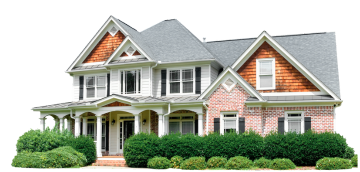The kitchen has evolved from a purely functional space into the heart of the home, a place to cook, entertain, and create memories. A well-designed kitchen extension can breathe new life into your property, offering more space, better light , and a seamless connection to your garden.
If you dream of an open-plan layout, a cosy family hub,or a contemporary showstopper, you will have endless possibilities with stunning kitchen extensions.
What is a Kitchen Extension?
A kitchen extension is expanding your existing kitchen space outwards into your garden, sideways into a return, or even upwards. It is one of the most sought out home improvement projects in the UK not only for added square footage, but also for its lifestyle benefits. Your kitchen extensions can be purely modern, traditional or a mix of the two, based on your preferences, budget, and type of house.
The most functional and good looking kitchen extensions incorporate sufficient lighting. To get this, many homeowners go for bi-fold doors, skylights and open plan kitchen extension designs.
What are the different types of Kitchen Extensions?
Knowing the types of kitchen extensions you can utilize can make the planning process smoother. Here are five of the most common:
Kitchen Extension with Skylights
Focuses on the addition of natural light to the kitchen. Best for homes that have darker interiors or for people who value a connection to nature.
Flat Roof Kitchen Extension
Sleek and modern. These extensions can have skylights and roof lanterns, as well. Flat roofs are often cost-effective and great for contemporary aesthetics.
Orangery kitchen extension
Featuring a partially glazed roof and solid brick or stone walls, an orangery style extension adds grandeur and warmth to the kitchen while maximising natural light.
Garden room kitchen extension
Designed to function as both a kitchen and a cosy retreat, this style blends indoor comfort with an outdoor vibe.
Kitchen conservatory extension
Fully glazed walls and roofs create a bright, sun-filled space ideal for cooking and dining with a garden view.
Stunning Kitchen Extension Ideas
If you want your kitchen extension to truly stand out, here are six inspirational ideas that combine style, light, and functionality:
Industrial chic with exposed extension
Use raw materials like steel beams, brick walls, and polished concrete floors for an urban loft-inspired look that’s stylish yet homely.
Two-tone kitchen extension
Contrast dark, dramatic lower cabinets with pale uppers for depth and a designer touch.
Split-level kitchen extension
Introduce subtle steps between the kitchens and dining areas to create zones while maintaining an open-plan feel.
Vaulted ceiling extension
Raise the roofline with a pitched or vaulted ceiling to create volume and magnificence, perfect for incorporating dramatic lighting.
Rusted countryside-inspired extension
Use reclaimed wood beams, farmhouse sinks, and vintage pendant lights for a warm, inviting feel.
Colour pop accents
Keep the base neutral but inject personality with coloured tiles, bar stools, or splashbacks. Easy to refresh when trends change.
Learn more about Flat Pack extensions here
How much does a kitchen extension cost?
The cost of a kitchen extension in the UK can vary dramatically depending on size, style, location, materials, and level of finish. The figure below provides a general guide, showing that every project is unique, and it’s wise to get multiple quotes before starting.
Average kitchen extension costs in the UK:
Small extension (10-15 m2): £20000-£35000
Ideal for compact properties or modest expansions. This budget typically covers basic constructions, standard kitchen units, and standard finishes.
Medium extension (20-30m2): £35000-£60000
Offer enough space for a generous kitchen-diner or an open plan layout. This range allows for upgraded materials, improved glazing, and potentially a kitchen island.
Large or bespoke designs: £60000 +
Suited to statement projects with premium finishes, structural alterations, and luxury features like bi-fold doors, skylights, or custom cabinetry.
Other costs to consider beyond the build price
- Architectural fees: Expect to pay 7-12 % of the total build cost for concept design, drawings, and project management.
- Planning permission fees: Usually around £200 in England, though some projects fall under permitted development.
- Structural engineer costs: Essential for load calculations and ensuring structural integrity.
- Kitchen fitting and appliances: A new kitchen can cost anywhere from £5000 to £ 30000+ depending on quality and brand.
- Finishes and flooring: Premium worktops, underfloor heating, or high spec tiling.
- Lighting and electrics: From basic fittings to designer pendants and smart lighting systems.
Do you need an architect for a kitchen extension?
While it’s not a legal requirement to hire an architect for a kitchen extension, doing so can be one of the smartest decisions you make for the project.
An architect brings a professional eye for detail, ensuring your new kitchen is not just bigger, but better. They’ll look beyond the obvious, suggesting creative ways to maximise the space, enhance the natural light, and improve the overall flow of your home.
An architect also helps you explore different kitchen extension designs, from open-plan extensions to flat roof kitchen extensions with skylights, making sure the layouts work for your lifestyle, cooking habits, and entertaining needs.
They’ll consider how the extension connects with your garden, where to position doors and windows, and how to make the most of views and sunlight throughout the day.
On the practical side, an architect ensures your extension meets the building regulations and complies with any local restrictions. If your property is in a conservation area or if you want a more complex design, they can manage the planning permission process on your behalf, saving you time and reducing the risk of delays.
They will also produce the accurate drawings that builders can work for, helping to avoid the costly mistakes during constructions.
Learn more about Garden Room Extension here
How to extend a small kitchen?
Extending a small kitchen can be challenging, but with smart planning and creative design, you can make the space feel far bigger than it is. The key is to combine clever use of light, space-saving solutions, and functional layouts that suit your preferences.
- Bring in natural light with glass features.
- Choose light colours and reflective finishes.
- Maximise space with a built-in appliance
- Use open shelving for a lighter feel.
- Consider a compact island or breakfast bar.
- Create a seamless flow to the outdoors.
With the right approach, a small kitchen extension can feel just as impressive as a large one. By blending light-enhancing features with smart storage and a thoughtful layout, you can create a space that feels open, inviting, and perfectly suited to your needs.
Learn more about Front House Extension here
Does a kitchen extension need planning permission?
In many cases, a kitchen extension can be built under the permitted development rights, which means you may not need to apply for formal planning permission. This is often the case if your design stays within specific size, height, and location limits set by the government. However, these rights come with strict criteria, and not all homes qualify.
You will almost certainly need planning permission if your property is in a conservation area or is a listed building, as these locations have additional restrictions to preserve their character.
You’ll also need approval if your proposed extension exceeds permitted development limits in terms of height, depth, or percentage of garden space used, or if it significantly alters the external appearance of your home.
Because rules can vary between councils and property types, it’s always wise to speak to your local planning authority before committing to designs or starting any work. This can save you from costly mistakes and legal complications later on.
FAQ’S
Yes, you can usually stay in your home during the build. Just be prepared for the noise, dust, and limited kitchen access.
Yes, a well planned kitchen extension can increase both market value and living space. It’s often a worthwhile investment.
Most kitchen extensions take 8 to 12 weeks to complete. Larger or more complex projects may take longer.
Yes, building regulation approval is required for most kitchen extensions. This ensures the work is safe and compliant.


 Describe your needs
Describe your needs
 it only takes 30 seconds
it only takes 30 seconds